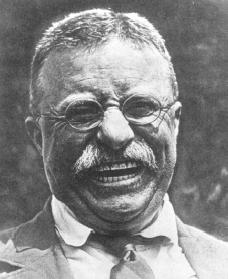1. Numbering my days reminds me of how blessed I have been. Isn’t it interesting that Moses tells us to number our days rather than our years? If I number my years, 38 doesn’t seem like that many. Were I to find out tomorrow that I had a terminal illness, I might be inclined to feel cheated, or short-changed, at such a small number as 38.
But when I number my days, it is a different story entirely. What a big number 13,953 is! And when we stop to think about it, what an extraordinary gift just a single day is! Each day comes with a sunrise and a sunset, and with a span of hours in between to make of what we will. Each day is so chock full of possibilities and excitement, of beauty and grace. Each day provides new opportunities to love and be loved. Rightly did the Psalmist (118.24) declare:
"This is the day that the Lord has made, let us rejoice and be glad in it."When we number our days, it is impossible not to realize how extravagantly blessed we have been. This much is clear: having bestowed almost 14,000 of these amazing gifts upon me already, God does not owe me even one more day! If the Lord were to end my earthly days today, how could I possibly complain? When I have been blessed 14,000 times already?
2. Numbering my days reminds me that I cannot change the past. Today is the 13,953rd day of my life; that means there are 13,952 days that I cannot do anything about. These are the days gone by. They are full of regrets … full of words I wish I could unsay … full of mistakes I wish I could unmake … full of sins I wish I could un-sin — but of course, I cannot. Not only are there the bad things I have done, there are also the good things I have left undone. One of the most humbling things about numbering my days is the realization of how many of them I have squandered — of how little I have to show for God’s investment of 14,000 days in me. I can do nothing about the days past, except lay them at the feet of Jesus. Can there be any doubt, from numbering our days, that we need a savior?
3. Numbering my days reminds me that I am mortal. The anonymous writer of Hebrews states, in 9.27, that “it is appointed unto man to die once, and after that comes judgment.” When I count up my days, this point is driven home. I am forced to realize that I am getting closer and closer to my appointment with death with each passing day.
In the 90th Psalm, Moses gives us a rule of thumb concerning the human life span, when he says “the years of our life are seventy, or even by reason of strength eighty.” I find it absolutely fascinating that Moses’s estimate from 3500 years ago corresponds so closely with our average life spans today! To me, this is a proof that Moses was receiving divine inspiration as he penned these words.
But these are averages; they are not promises. We have seen too many people die much younger than 70 to delude ourselves on this point. This is a dangerous world. How many of us in the last month have ridden in a vehicle traveling 55 miles per hour or more? Have you ever realized how inherently dangerous that is? How many of us have ridden with a driver who was on their cellphone? Studies show that drivers who talk and drive are
about as impaired as those who drink and drive, and that those who text and drive are actually
more impaired! The point is, there is no real safety on this side of the grave. Truly, we can say with David,
“there is but a step between me and death.” (1 Samuel 20.3)
Because of that, none of us know how many days we have left. Solomon observed, in Ecclesiastes 9.12, that “man does not know his time.” While it is relatively easy for us to number the days which are past — (especially if you use a computer spreadsheet!) — only God can number the days ahead of us.
4. Numbering my days reminds me that today must be put to good use. I can do nothing about the days past. I cannot depend upon being here tomorrow. This may be my last day. Therefore, if I am wise, I should make the most of today.
The Roman poet Horace coined the phrase, “Carpe Diem” which means “Seize the day!” I love the way that a more recent poet, Rudyard Kipling, expressed the same idea:
If you can fill the unforgiving minute
With sixty seconds’ worth of distance run,
Yours is the Earth and everything that’s in it,
And—which is more—you’ll be a Man, my son!
Nor am I the only one who likes Kipling’s advice. One of the most aggressive American generals of the Second World War — or of any war, for that matter — was George S. Patton. He once said that this passage from Kipling was the “whole art of war.” (Patton certainly understood the idea of covering distance quickly, as the Germans found out the hard way.)
“Seizing the day” — or “filling the unforgiving minute” — is very much a Biblical thought:
• Jesus said in John 9.4, “We must work the works of him who sent me while it is day; night is coming, when no one can work.”
• Paul, in 2 Corinthians 6.2, declares, “Behold, now is the favorable time; behold, now is the day of salvation.”
• In Ephesians 5.15-16, Paul adds — in the words of the Old King James: “See then that ye walk circumspectly, not as fools, but as wise, redeeming the time, because the days are evil.” (I particularly like quoting this verse to my students, as I am keeping them to the bell, or just a little bit after, with my lectures; I’m not sure, on those occasions, that my students are as appreciative of the teachings of Paul as they should be!)
One of Satan’s most devastating weapons is his ability to tempt us to procrastinate. We intend on doing so many good things — but we’re going to do them tomorrow, as if, somehow, they will be easier to do tomorrow than they are today. And then tomorrow comes, and we put these good things off ’til another day, and another week, and another month, and they don’t get done — and “the road to hell is paved with good intentions,” as the old saying goes.
As we’ve just seen, in the Bible, the emphasis is always on today, not tomorrow. To borrow a phrase from Martin Luther King, Jr., the Bible speaks of “the fierce urgency of now.”
• Today is the day to start that big school project you have looming over you …
• Today is the day to share a cup of coffee with an old friend, or with a new one …
• Today is the day to tell your loved ones that you love them …
• Today is the day to make amends with those you’ve hurt …
• Today is the day to repent of an ensnaring sin …
• Today is the best possible day to be baptized into Christ …
My late grandfather had, hanging in his study, a meditation written by Dr. Heartsill Wilson, entitled “A New Day.” It is an especially appropriate passage to share with you, as we bring our remarks to a close:
This is the beginning of a new day. God has given me this day to use as I will. I can waste it — or use it for good, but what I do today is important, because I am exchanging a day of my life for it! When tomorrow comes, this day will be gone forever, leaving in its place something that I have traded for it. I want it to be gain, and not loss; good, and not evil; success, and not failure; in order that I shall not regret the price that I have paid for it.
Moses said, “So teach us to number our days that we may get a heart of wisdom.” Of course, he was right; there is wisdom to be gained in numbering our days. Numbering our days reminds us of how blessed we have been; reminds us that we cannot change the past; reminds us of how mortal we are; and reminds us to make good use of today.
Some time ago, I went into a grocery store to pick up an item or two. It was morning. The lady running the cash register was mature in years. As I concluded my business, I offered an banal “have a good day.” I was not expecting a life lesson, but I will never forget what she said. She kindly explained that over the years she had learned that you don’t really have good days; you make good days.
And so, as we take leave this morning, make a good day! You are dismissed.
(Note: I delivered this in chapel the same day.) 






.jpg)














